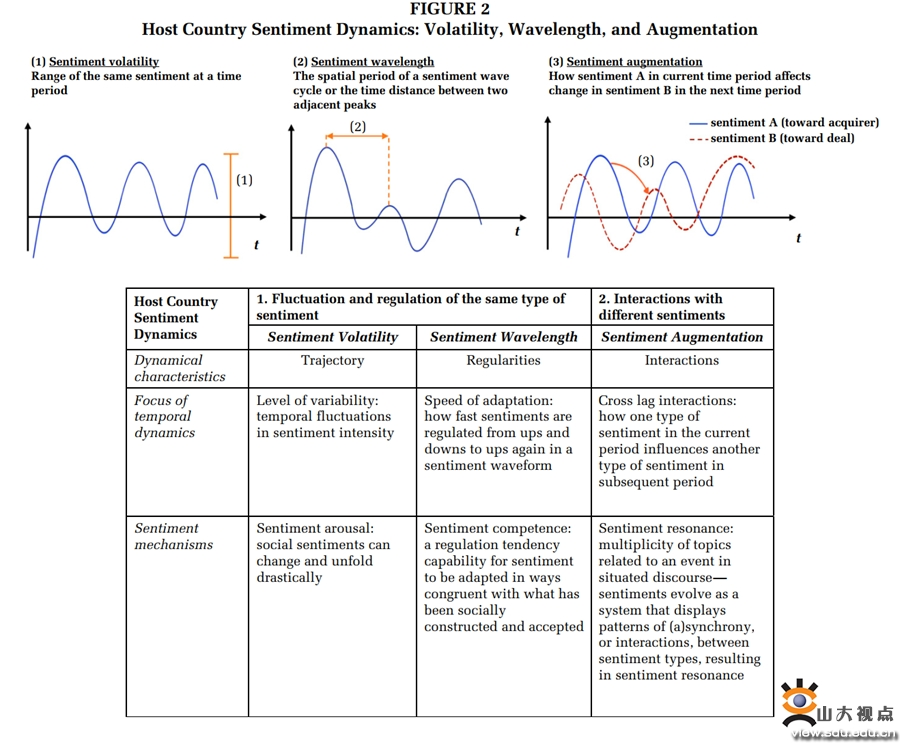Recently, Associate Professor Tian Xiaocong of the School of Management published the latest research “A theory of host country sentiments: An illustration in cross-border acquisitions” online in the top international journal Academy of Management Journal. The journal is one of the Top 24 Academic Journals in Business Schools selected by the University of Texas at Dallas (UTD 24), enjoys a high academic reputation in the international management community, and is globally recognized as the top academic journal in the field of organization and management research. Associate Professor Tian is the co-corresponding author of the paper, and Shandong University is the corresponding author affiliation. The research is funded by the National Natural Science Foundation of China.

Due to political and cultural differences, multinational enterprises (MNEs) are increasingly subject to the influence of local stakeholders and the critical governance scrutiny triggered by geopolitics, the rise of social movements, and social media support and boycotts, thus making host country sentiments an important force shaping the strategic behaviors and outcomes of MNEs in local markets. Based on the mass sentimental diffusion and mobilization aided by mass and social media, the paper proposes a general theory of host-country sentiments to shed light on the strength, context, and temporal dynamic forces of social sentiments. The paper hypothesizes that the host country is a value-laden environment where the strategic actions of foreign entities stimulates host country sentiments and systems of discourses (Sentiment Arousal), mobilizes social sentiments towards foreign entities (Sentiment Competence) and legitimizes the strategic actions of foreign entities and social sentiments (Sentiment Resonance). To test the proposed theory, the paper chooses domestic acquisitions by companies in emerging markets within developed economies as the research background. It studies the patterns of host country sentiment dynamics and demonstrates how Sentiment Volatility, Sentiment Wavelength and Sentiment Augmentation have heterogeneous effects on transaction completion.

The general theory provides a new perspective on the nascent literature on collective sentiments by integrating collective Sentiment Arousal, Sentiment Competence, and Sentiment Resonance. In addition, the paper synthesizes relevant theories on social sentiments, such as ritual interaction, meaning construction, social construction and institutional perspectives, to examine the impact of social sentiments on business by integrating contextual, interactive, motivational, and cognitive elements of social sentiments. The conceptual and empirical differences between host country affect and sentiment dynamics (Sentiment Volatility, Sentiment Wavelength, and Sentiment Augmentation) is a great leap to elucidate the heterogeneous and granular impacts of social sentiments.
In recent years, the School has actively created an academic atmosphere with high quality and innovation, and has been supporting the development of research and young teachers. In 2023, young teachers in the School were awarded 13 Youth Programs of the National Natural Science Foundation of China and published several high-level research achievements. The publication of the paper in the Academy of Management Journal marks a great breakthrough for the School.
Tian Xiaocong is an associate professor of the School, whose main research areas include international business and corporate governance. She has led and participated in multiple National Natural Science Foundation Programs and published several research results in the Academy of Management Journal, Journal of International Business Studies, Journal of World Business, International Business Review, and other journals.
Link: https://journals.aom.org/doi/10.5465/amj.2022.0239